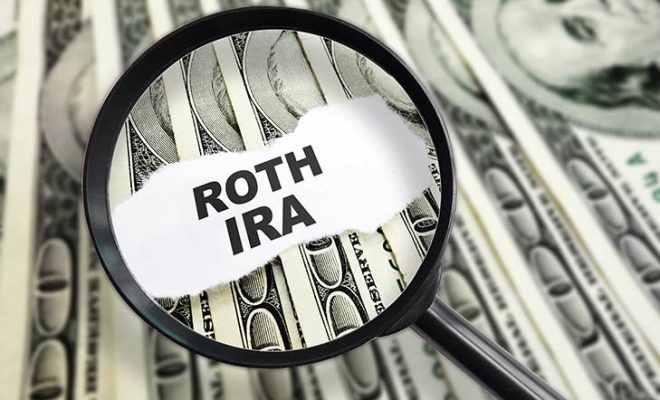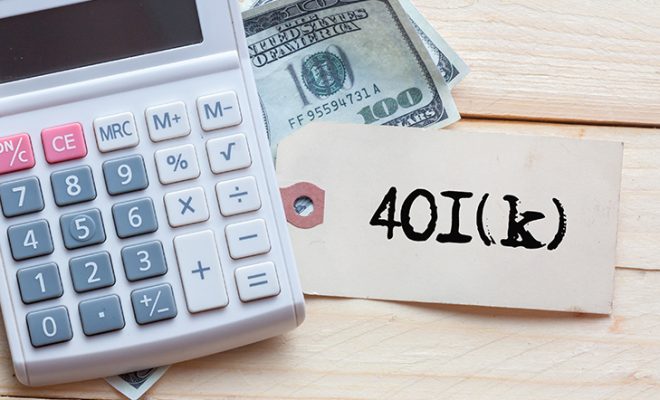What Are the Tax Implications of an Inherited Roth IRA?

When you lose a family member, managing their old retirement accounts is likely not one of the first things that come to mind. However, if you are a beneficiary of the deceased person, it is important to consider what is to be done with their retirement account at some point. A wrong decision or careless planning could cause you a lot of taxes and penalties. This is because each retirement account has its terms and conditions along with applicable withdrawal rules. Any breach of the conditions can cause a significant tax charge for you.
For instance, if you inherited a traditional IRA (Individual Retirement Account), you will have to adhere to regulations specified by the IRS (Internal Revenue Service) on how you can use this inheritance and the timeline you have to withdraw funds from the account. You will also need to take RMDs (Required Minimum Distributions) from the inherited IRA account. Failing to do so can cost you hefty penalties until the error is rectified. IRA withdrawals are also taxable as ordinary income, which is important to consider in case you have an inherited traditional IRA.
The rules for a Roth IRA differ drastically. A Roth IRA is an individual retirement account that comprises after-tax contributions, offers tax-free earnings and tax-free withdrawals, and is subject to some simple conditions. Hence, if you inherited a Roth IRA from your family member – spouse, parent, friend, etc., you can easily utilize the funds to your advantage. But, even in this case, you have to be careful to avoid certain Roth IRA inheritance tax implications. Your relationship with the original owner of the Roth IRA and the age of the account will determine options that are feasible for you to minimize taxes.
Here are important things you need to know about the Roth IRA inheritance tax:
What is an Inherited IRA?
An inherited IRA is an individual retirement account that is opened for the listed beneficiary when the original owner of the account dies. The beneficiary can be a spouse, family member, unrelated person, or even a trust, estate, or non-profit organization. Over the years, IRAs have been increasingly used as an estate-planning tool, owing to their tax advantages.
However, tax implications for an inherited IRA depend on whether you are a spouse or a non-spouse. Moreover, the type of inherited IRA – traditional or Roth IRA – plays a major role in determining the tax impact. If you are a beneficiary of a traditional IRA account, you will likely pay taxes on your distributions. Alternatively, if you received a Roth IRA as inheritance, your Roth IRA inheritance tax will be minimum, provided some specific criteria are met.
Is an Inherited Roth IRA Taxable?
A Roth IRA is a valuable estate planning tool. Their tax implications on the beneficiary after the demise of the original owner are minimal and, in some cases, do not exist at all. A Roth IRA includes after-tax contributions, and hence, does not offer an upfront tax deduction like a traditional IRA. However, Roth IRA earnings, as well as withdrawals during retirement, are completely tax-free if the Roth IRA account was held for at least five years from the years the first Roth contribution was made.
Thus, if you received a Roth IRA as an inheritance, it is highly unlikely you will have to pay any Roth IRA inheritance taxes. The only sum that could be taxed is the earnings on the Roth IRA contributions. This is also only possible if the distributions from an inherited Roth IRA are taken before the expiry of the five-year holding period.
For instance, if you received an inherited Roth IRA where the original owner of the account died in 2020, and where the account was opened in 2015 or earlier, the entire balance of the Roth IRA account you received as an inheritance is tax-free. This is because the account fulfilled the five-year holding period as specified by the IRS. This tax-free status for an inherited Roth IRA also stands true if the original Roth IRA account ceases to exist, and even if the contribution for the year 2015 was deposited in 2016. This is because, as per rules, both a traditional IRA and a Roth IRA can be sponsored for a tax year, which is as late as the tax filing deadline for April.
Alternatively, if you are a beneficiary of a Roth IRA that was opened in 2016, 2017, 2018, 2019, or 2020, but the original owner died in 2020, the earnings of your inherited Roth account would be taxable. However, if you wait until the expiry of the five-year holding period, you would get tax-free distributions. Here, if the account was opened in 2017, the entire Roth IRA balance is available tax-free from the year 2022. If the deceased funded the Roth IRA in 2019, you must wait until 2024 to get tax-free earnings.
That said, this does not mean that you cannot get any tax-free funds from the inherited Roth IRA as a beneficiary, until the five-year expiry date. All the other funds, except for the Roth IRA earnings, can be taken tax-free from the account. So, when you order a withdrawal from the Roth IRA, the IRS typically gives the first distributions from the regular contributions. The following distributions come from conversions and Roth rollovers (per a first-come-first go basis) if any. The last section of drawings comprises earnings on contributions. This means that even if you inherit a Roth IRA before the five-year period is up, you can still avoid the Roth IRA inheritance tax, provided you only withdraw the contributions and conversions. In the case of conversions, the five-year rule ceases to exist if it is an inherited Roth IRA. As per the IRS rules, the tax penalty of 10% imposed on Roth IRA distributions, taken before the age of 59.5, does not apply to the beneficiaries of the Roth IRA account, regardless of their age.
For instance, consider a scenario where your inherited Roth IRA was open for less than five years since the owner of the account died. The balance of the inherited account was $80,000 in contributions and $30,000 in earnings. In this case, you can take out $80,000 tax-free without paying any penalty. The remaining $30,000 is taxable if withdrawn before the completion of five years of the Roth IRA holding.
What are the Tax Implications on Required Minimum Distributions (RMD) for a Roth IRA?
The IRS requires you to take withdrawals from your inherited Roth IRA if you are not a spouse of the deceased person. If you fail to take RMDs, the IRS levies a 50% tax penalty on the sum not withdrawn. This is applicable even if the distribution is not taxable originally. In another scenario, if you are a spouse and you treat the inherited account as your own, you have other provisions and exemptions.
Like a Roth IRA beneficiary, your relationship with the original account owner and when the account owner died has a significant influence on the inherited Roth IRA taxable amount.
- Based on your relationship: If you are the spouse of the original Roth IRA owner, the IRS lets you use the funds from the inherited account as yours. However, if you are not the spouse, different rules apply.
- Based on the death of the account holder: The Setting Every Community Up for Retirement Enhancement (SECURE) Act, 2019, altered the rules for inherited retirement accounts, including Roth IRA. So, if your loved one (the original Roth account holder) died before December 31, 2019, then you do not have to worry about the new IRS rules. However, if the death was later than this, you have to abide by the new distribution rules of the Roth IRA.
Inheriting a Roth IRA From a Spouse
If the Roth IRA account holder was your spouse, your options for inheriting a Roth IRA are different.
- You can choose to designate yourself as the new owner of the account or transfer the balance to your existing Roth IRA account. However, for this purpose, you should be the sole beneficiary of the inherited account. In this option, you will be liable to pay the Roth IRA inheritance tax as per the ordinary income tax rate and a 10% penalty, provided you withdraw the funds before you are 59.5 years old.
- You can also opt to create a special inherited Roth IRA, also known as a beneficiary IRA. You will not be allowed to make any contributions to this account but will be mandated to take RMDs (Required Minimum Distributions). However, if you are the spouse of the owner, you can extend your distributions over a lifetime. Further, you are not subjected to the 10% penalty for drawing funds before the age of 59.5.
- You can also take your Roth IRA distributions in a lump sum, unlike a traditional IRA. However, for the withdrawals to be tax-free, the Roth IRA must have fulfilled the five-year rule. Also, if you take the fund value in cash, you miss out on the opportunity to get tax-free growth on the funds.
Inheriting a Roth IRA as a Non-Spouse
If you have received a Roth IRA inheritance from a person other than your spouse (parent, friend, family member, etc.), you have relatively limited options since the account is not treated as yours.
If you inherit a Roth IRA from a person who died in 2020 or later:
- You can open an inherited Roth IRA in your name and transfer the assets from the original Roth IRA account. However, you will be subject to take RMDs, beginning from December 31 of the year following the death of the original Roth account holder. Moreover, you cannot spread the distributions from this account over your lifetime using the IRS uniform life expectancy table. As per the SECURE Act, all distributions from the inherited Roth account should be distributed within 10 years of the death of the original account holder. In case there is more than one beneficiary, the distributions will be decided as per the life expectancy of the oldest beneficiary. You can take the distributions at any time, and earnings are not taxable if the five-year rule is met.
- You can also choose to open an inherited Roth IRA and spread your distributions over time, provided you qualify as an eligible designated beneficiary.
You qualify as an eligible beneficiary if:
- You received the Roth inheritance from your spouse
- You are the minor child of the Roth IRA owner
- You suffer from a chronic disease or disability
- The original Roth IRA holder was ten years older than you
If you inherit a Roth IRA from a person who died in 2019 or earlier:
- You can open an inherited Roth IRA, but you have to take RMDs. However, you can stretch the RMDs over your lifetime and aim to maximize tax-free growth.
- You can choose to open an inherited Roth IRA and take out all the funds within five years. This will imply that you do not have to take any RMDs.
Irrespective of when the original owner died, you have an option to take a lump-sum distribution for the inherited Roth IRA. If the account has been active for five years, you do not have to pay any taxes or a penalty regardless of your age at the time of withdrawal.
To conclude
If you received an inherited Roth IRA, you can ideally leave the assets in the account for as long as possible to benefit from the tax-free growth in the long term. Earnings in the Roth IRA do not have an upper limit and are not taxed if they meet the five-year rule. However, to take proper advantage of the Roth IRA inheritance tax benefit, it is important to understand and follow the rules. It is beneficial to consult a professional financial advisor to ensure you comply with all the rules and understand your opportunities clearly to maximize the growth of the money you received as an inheritance.
For further clarification on Roth IRAs and other retirement accounts, visit Dash Investments or email me directly at dash@dashinvestments.com.
About Dash Investments
Dash Investments is privately owned by Jonathan Dash and is an independent investment advisory firm, managing private client accounts for individuals and families across America. As a Registered Investment Advisor (RIA) firm with the SEC, they are fiduciaries who put clients’ interests ahead of everything else.
Dash Investments offers a full range of investment advisory and financial services, which are tailored to each client’s unique needs providing institutional-caliber money management services that are based upon a solid, proven research approach. In addition, each client receives comprehensive financial planning to ensure they are moving toward their financial goals.
CEO & Chief Investment Officer Jonathan Dash has been profiled by The Wall Street Journal, Barron’s, and CNBC as a leader in the investment industry with a track record of creating value for his firm’s clients.









